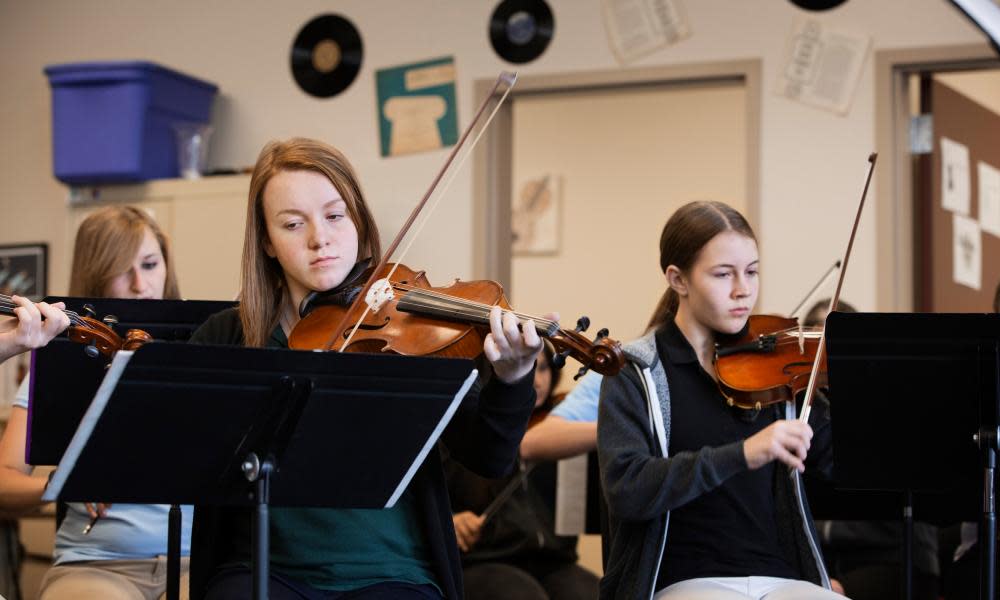Provision of music in schools is evolving | Letters

The brief piece by Michele Hanson (Music in schools will soon be extinct, 18 July) doesn’t help the cause for school music. I wonder how inspired I would have been to enter the profession through Teach Firstif I had read this when I graduated from Cambridge nearly 15 years ago. If we want the best graduates to come into the teaching profession, we need to present a more appealing case. I don’t think we are heading for extinction, but for a time when provision is evolving.
Ms Hanson lauds the days when all instrumental tuition was free. That is still the case, as many children follow First Access instrumental programmes and WCET (whole-class ensemble tuition) in our primary schools. In the commercial sector, there is better provision than ever: Charanga provides an incredible online learning platform that is totally accessible to non-specialist music teachers and often paid for by music hubs for schools to access. Operations such as Rocksteady Music School provide a value-for-money option that is inspiring and promotes all the great character benefits of learning music: teamwork, listening and confidence. Musical Futures, an informal learning model initially inspired by research led by Lucy Green from the Institute of Education in London, is held up around the world as a breakthrough in music education. It’s inspiring thousands more young people to enjoy music-making in school.
I don’t accept that Andrew Lloyd Webber does not deserve his lifetime achievement award. The Music in Secondary Schools Trust, supported by his foundation, is bringing the instrumental tuition that Ms Hanson regards so highly to entire year groups in eight London secondary schools. Several of those students have been members of the National Youth Orchestra and will go to our world-renowned conservatoires. Lloyd Webber also supports the National Orchestra for All, which selects its musicians by need and teachers’ recommendation. Both these programmes counter the perceived decline in music-making led by local authorities and go a long way to making the activity far more inclusive.
Yes, it is disappointing that the government does not support music education as it should, but there is a need to be pragmatic. Let’s celebrate and encourage those working to improve the provision for young people.
Catherine Barker
Head of music and performing arts, United Learning
• Join the debate – email guardian.letters@theguardian.com
• Read more Guardian letters – click here to visit gu.com/letters

 Yahoo News
Yahoo News 
